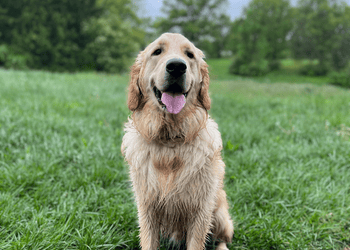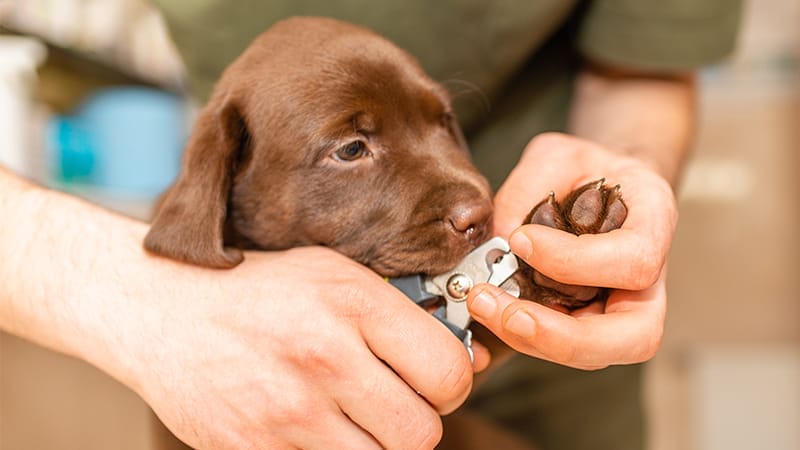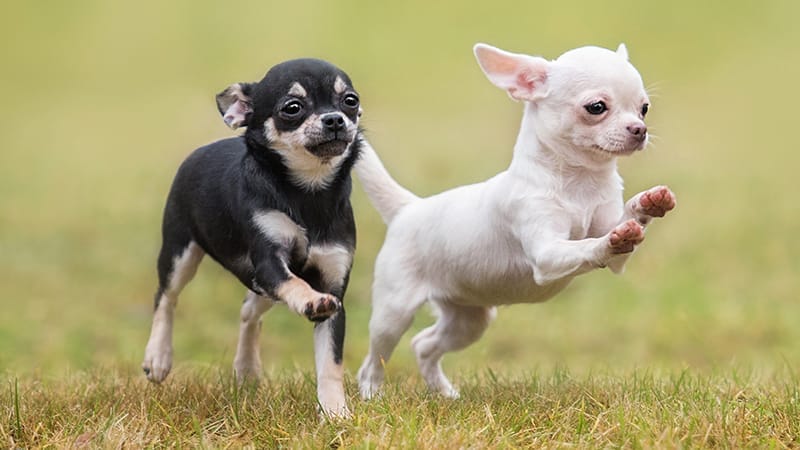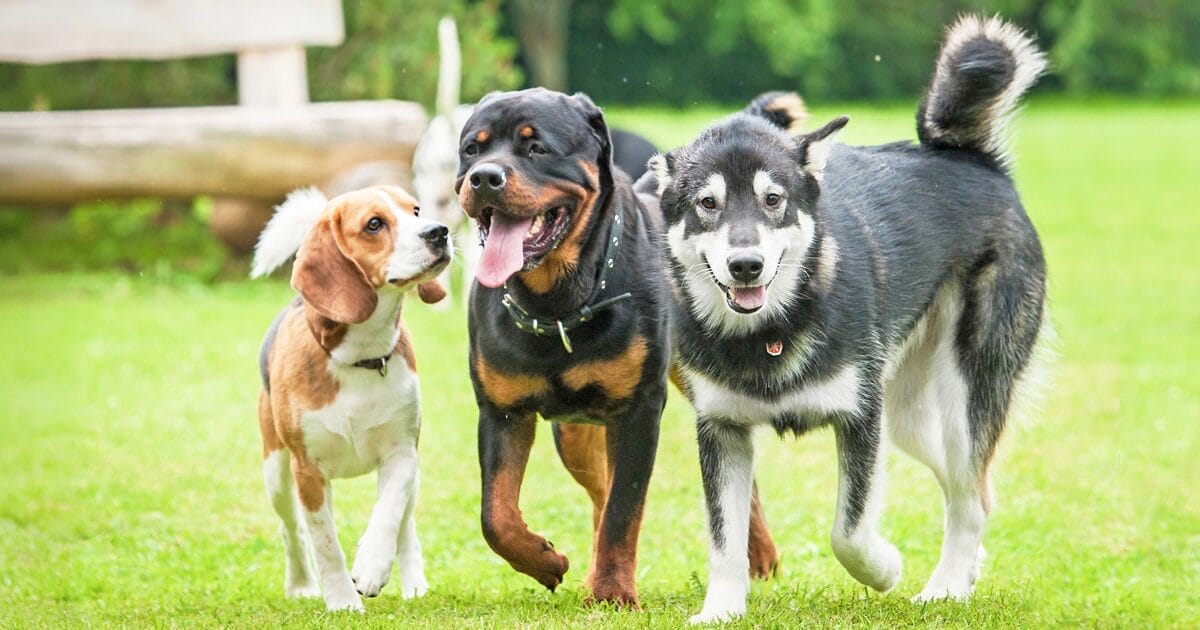
Puppy Care 101: Vet-Approved Guide for the First Year
Discover puppy care tips for new owners. Learn about potty training, vet visits, exercise, nutrition, and more for a happy, healthy pup.
Bringing a new puppy into your family can be an exciting and rewarding experience. However, it also comes with its challenges. With patience, love, and the right guidance, you can navigate the journey of puppy parenthood with confidence. This guide covers essential aspects of caring for your new puppy, from potty training and veterinary visits to exercise, nutrition, and grooming.
Creating a Safe Environment for Your Puppy
Puppy-proofing your home is important to prevent accidents and ensure your dog’s wellbeing. You can puppy-proof your home by taking these steps to remove hazards and secure potential dangers.
Inside the home, store items such as cleaning supplies, medications, and certain household chemicals in high cabinets or locked containers out of your dog’s reach. You may be surprised what common household items are toxic to pets. Additionally, electrical cords, wires, and small objects like coins, batteries, and jewelry may be chewed on or swallowed by curious dogs.
Gastrointestinal blockages in pets are a serious and potentially life-threatening issue that can arise when dogs or cats ingest foreign objects. MedVet Surgeons frequently remove unexpected items from dogs, including clothing like socks and underwear. To prevent this, keep your laundry hampers out of your dog’s reach. Also, be sure to secure your trash cans, as dogs are often attracted to personal care items that smell like their owners.
To ensure your yard is puppy-friendly, start by inspecting your fencing for any gaps or weak spots that could allow your puppy to escape or get stuck. Remove any hazards, including toxic plants, sharp objects, and loose materials like mulch or rocks that might be ingested. Until you’re familiar with your dog’s behavior and habits, it’s a good idea to supervise their time in the yard. Additionally, consider microchipping your puppy to increase your chances of reunification should they become lost.
Training Your Puppy
Potty training is one of the first hurdles you’ll face with your new puppy. The key to successful potty training lies in consistency, patience, and positive reinforcement. Choose a specific command, such as “potty,” and use it consistently to help your puppy associate the word with the action of relieving themselves outside. Reward your puppy with treats and praise when they successfully go potty outside.
Creating a schedule can help streamline the potty-training process. Take your puppy outside frequently, ideally:
- First thing in the morning
- After playing indoors
- After spending time in a crate
- Upon waking from a nap
- After chewing on a bone or playing with a toy
- After eating or drinking
- Before bedtime
When accidents happen during puppy training, it’s important to remain calm and avoid scolding. Effective training relies on immediate responses to behaviors you want to encourage or discourage. Since dogs don’t understand complex sentences, scolding after the fact can be confusing. Instead, if you catch your puppy in the act, firmly say “no,” quickly take them outside, and let them finish their business. This approach helps your puppy learn what’s expected of them.
Want to learn more about common dog behaviors and what they mean? Check out our blog post.

Health Care for Your Puppy
Puppies require multiple veterinary visits during their first year to receive essential vaccinations and protection against diseases and parasites.
Puppies typically start receiving vaccinations at six to eight weeks old, with booster shots needed every three to four weeks until they are 16–18 weeks old. The core vaccinations usually include:
- Distemper – Protects against a highly contagious viral disease that can cause severe illness, particularly gastrointestinal, respiratory, or neurological issues.
- Parvovirus (Parvo) – Guards against a potentially life-threatening virus that affects the gastrointestinal system.
- Rabies – Essential for protecting against the rabies virus, which is fatal to dogs and can be transmitted to humans.
The classic puppy vaccine is often referred to as DHLPP (or DHPP when leptospirosis is excluded). This combination includes distemper, hepatitis (infectious canine hepatitis, which causes severe liver disease), leptospirosis, parvovirus, and parainfluenza (a virus that can contribute to kennel cough). In some cases, vaccines may be missing components like infectious canine hepatitis and parainfluenza, which are still important parts of comprehensive puppy immunization.
Additional vaccines may be recommended based on your location and the puppy’s lifestyle, such as:
- Leptospirosis – Protects against a bacterial infection that can cause severe kidney and liver disease.
- Bordetella – Helps prevent kennel cough, a highly contagious respiratory disease.
- Lyme Disease – Recommended for puppies living in or visiting areas with high tick populations.
It’s important to note that leptospirosis, bordetella, and Lyme disease vaccines have special vaccination schedules. Because these are bacterial infections—unlike the viral diseases covered in core vaccines—the immunity they provide tends to be shorter-lived. As a result, these vaccines may need to be administered more frequently. Timing can also play an important role in their effectiveness; for example, giving the Bordetella vaccine a few weeks before a kennel stays, or administering leptospirosis and Lyme disease vaccines just before the spring and summer months when exposure risk is highest, can help ensure better protection.
Understanding which insects are likely to cause problems for your pet can help you prevent discomfort and health issues.
Puppies typically receive a series of vaccinations during their first year. The common schedule is as follows:
- 6 to 8 weeks: The first round of vaccinations, which may include distemper, parvovirus, and other recommended vaccines.
- 9 to 11 weeks: A second round of vaccinations, focusing on booster shots for distemper and parvovirus.
- 12 to 14 weeks: A third round, providing further boosters for distemper and parvovirus.
- 16 to 18 weeks: The final round of puppy vaccinations, along with the first rabies shot.
- 1 year: Booster shots for core vaccines to maintain immunity.
It’s essential to adhere to this schedule as closely as possible, with vaccinations given every three weeks, to ensure the best possible vaccine coverage. This is because the level of maternally acquired immunity (antibodies from the mother) can wane unpredictably in puppies, making it important to follow the recommended schedule to protect them during this vulnerable period.
Consulting with your veterinarian is necessary to determine the best vaccination plan tailored to your puppy’s specific needs, health, breed, and location.
Your veterinarian will recommend heartworm and flea/tick prevention measures once your puppy is old enough. Heartworm disease is a preventable yet life-threatening condition. Various prevention options are available, including topical treatments, oral medications, and collars. Preventing these parasites is more cost-effective than treating the diseases they cause. Learn more about flea product dos and don’ts in our blog post.
Spaying or neutering is a surgical procedure that sterilizes your puppy, preventing them from reproducing. The decision on when to spay or neuter depends on several factors, including the puppy’s breed, size, and health status. Generally, veterinarians recommend spaying or neutering between 6 to 9 months of age.
The benefits of spaying or neutering include:
- Population Control: Prevents unwanted litters and reduces the number of dogs in shelters.
- Health Benefits: Reduces the risk of certain health issues, such as uterine infections and testicular cancer.
- Behavioral Improvements: Can decrease undesirable behaviors such as roaming, aggression, and marking territory.
Consult with your veterinarian to determine the best time for spaying or neutering your puppy based on their individual needs.
Proper Nutrition for Your Puppy
Choosing the right food is necessary for supporting your puppy’s growth. Consult with your veterinarian to select a high-quality, puppy-formulated food that meets your puppy’s nutritional needs. Puppies typically eat three times a day until they are 4-6 months old, gradually reducing to twice a day as they mature. Ensure your puppy always has access to clean water.
Monitor your puppy’s weight and adjust their food intake accordingly to prevent overfeeding. Overweight pets are at a higher risk of developing health issues such as diabetes and joint problems, such as osteoarthritis.
For more information on how to read pet food labels to ensure your puppy’s wellbeing, read our blog post. If you want to give your puppy a human food treat, be sure to know what foods your dog can eat and what foods to avoid.

Getting Your Puppy Comfortable with Grooming
Getting your puppy accustomed to grooming from an early age makes future grooming sessions less stressful. One important aspect of grooming is nail care. Playing with your puppy’s feet and getting them comfortable with nail trims can make a significant difference in their tolerance for this necessary procedure.
To help your puppy become comfortable with nail trims:
- Gently hold their paws for a few seconds to help them get used to the sensation.
- Touch their toes or nails to desensitize them to being handled in this area.
- You can even lightly use a nail file near their toes to get them accustomed to the feeling and sound of nail care tools.
This early exposure makes the experience more pleasant for both your puppy and the groomer or veterinarian. By starting early and being gentle, you can help prevent nail injuries and reduce the stress associated with nail care. Learn how you can prevent nail injuries and when to seek veterinary care.
Additionally, regular brushing helps reduce shedding and prevents matting. It also provides an opportunity to inspect your puppy’s coat for any signs of skin issues or parasites.

Socialization and Exercise for Your Puppy
Exercise is vital for your puppy’s development, and the amount needed can vary by breed. Researching your puppy’s breed can help you understand their exercise requirements. Start leash training early, even if it’s just around your backyard until they’re fully vaccinated. Provide toys that are appropriate for your puppy’s age and size to prevent injury. Supervise your puppy closely to ensure their safety, as they can easily get into mischief.
Socialization is also important for your puppy’s development. It involves exposing your puppy to various environments, people, and other animals to help them become confident and calm in new situations. Proper socialization can reduce the risk of behavioral problems later in life.
Training is an also essential part of raising a well-behaved puppy. Start with basic commands like “sit,” “stay,” and “come.” Positive reinforcement techniques, such as using treats and praise, are highly effective.
Crate training is a valuable tool for house training and providing a safe space for your puppy. To get the most out of crate training, introduce the crate gradually, making it a comfortable and welcoming space for your puppy. For a step-by-step guide on how to crate train your puppy effectively, you can refer to the American Kennel Club’s blog post on the topic.
Having a puppy is a significant responsibility and a long-term commitment, with the average dog lifespan ranging from 10 to 13 years. While it’s a lot of work, the rewards are immense. Showing your puppy love, affection, and taking the time to bond with them helps them feel safe and loved.
Visit our Pet Care Resources library for more pet health and safety information.
FAQs
How do I potty train a puppy?
What vaccines does my puppy need?
When should I spay or neuter my puppy?
What should I feed my puppy?
Learn More
For ways to ensure your pet lives a happier, healthier life, visit our Pet Care Resources library.
Pet Care ResourcesContents
Learn More
For ways to ensure your pet lives a happier, healthier life, visit our Pet Care Resources library.
Pet Care Resources


